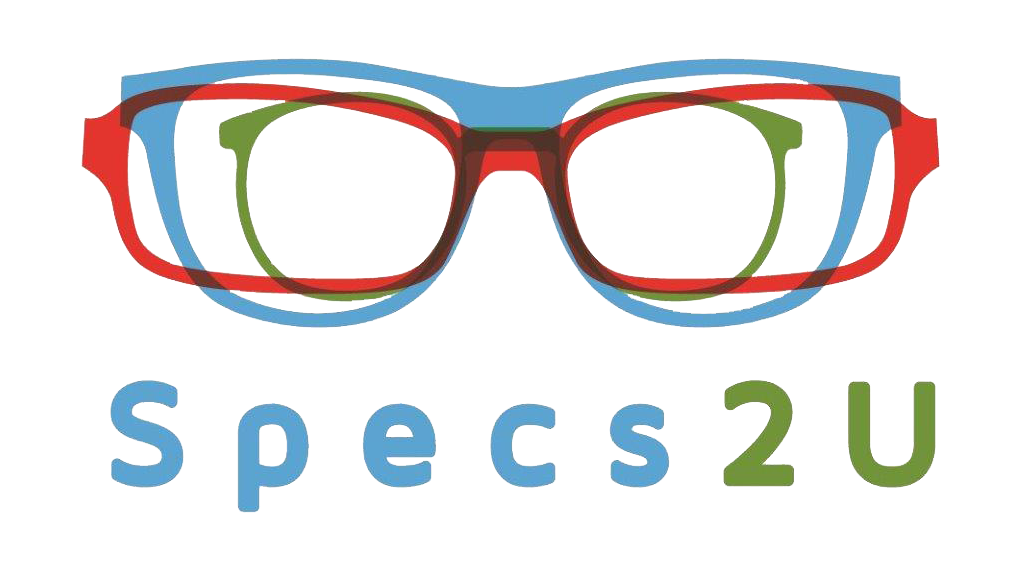What are computer glasses?
Computer glasses are prescription glasses that are designed to wear when doing computer work. They allow you to focus your eyes on a computer screen, which is farther away than reading material is normally held. There are other activities such as for example playing piano (piano glasses) or shooting (shooting glasses) that also require a similar custom fitting. These speciality glasses called "task-specific" are designed to meet the visual needs of the activity.
General purpose bifocals are not designed for computer work. They force the wearer to tilt the head back in order to focus on the screen while looking through the lower segment of the bifocal lenses. Such a forced position can cause neck and shoulder pain and it can also cause arm and low back pain.
Depending on the individual's vision and type of work, there are several options while selecting computer-specific glasses, such as:
Monofocal
Monofocal or single-vision glasses provide the appropriate optical correction for the working distance between the screen and the computer user's eyes. This option allows users to view the whole screen with a minimum up-and-down head movement. The disadvantage of this option is that both distant objects and reading materials that are closer than the computer screen will appear blurry.
Bifocal
Bifocal glasses can be prescribed so that the upper segment is set up for the screen distance and a lower segment for work that is closer than the screen ("reading distance").
The disadvantage of this option is that objects farther away than the screen are blurry. Bifocal lenses also distort images of objects in the peripheral zone of vision. Segmented lenses like bifocals and those mentioned below have a smaller area for viewing the screen. This means more up-and-down head movement is required to view all parts of the screen.
Trifocal
Trifocal glasses have lenses that combine a segment for far vision (upper), another for near vision (lower / bottom) and a third one for vision at the screen distance (middle, between the far and near segments). The disadvantage of using trifocal lenses is a limited continuity of vision. Distortion in peripheral vision is more pronounced than in using bifocals.
Progressive Addition Lenses (PAL)
Progressive Addition Lenses (PAL) offer better continuity of vision by eliminating lines between segments of different focal power. Wearers of PAL also report less distortion of peripheral vision than those wearing conventional multifocal glasses.
Which kind of computer glasses are the best?
There is no such a thing as one type of computer glasses that fits all or is the best for everybody. Visual ability and personal preferences of a computer operator, the type of work, the distance between the computer user's eyes and the monitor, lighting design in any given workplace are factors that should be taken into consideration while selecting computer glasses.
Each of the options listed above can be beneficial for computer users, if properly fitted and re-corrected as needed. However, it is very important that the selection of computer glasses is made based on consultation with an eye specialist (optometrist and ophthalmologist) who is knowledgeable in problems specific to the regular use of a computer.
Why do you need frequent eye examinations?
Eye specialists recommend that adults have their eyes examined once every two years. If you have not had an examination in the previous two years and are having increasing difficulty in reading, having blurred vision or other eye-related symptoms, or have a family history of eye or vision problems, it is probably time for an eye examination.
Working with a computer on a regular basis (a few hours a day) is very demanding on the computer operators' eyes. Eye specialists report a growing number of patients who relate their vision problems or complaints to their use of computers. The term "computer vision syndrome" (CVS) has been coined to refer to these computer-related vision problems. CVS is replacing "eyestrain" more and more frequently.
Ergonomically sound computer workstations, favorable work-rest schedules, properly designed visual environment alleviate eyestrain (visual problems) among computer operators. However, in many cases such measures alone cannot be effective if the computer operator's vision is not corrected.
Because of the potential extra stress on the eyes, eye specialists may suggest more frequent examinations for all (young and older, with perfect or already corrected vision) who do computer work on a daily basis. Consult with your eye specialist for the recommended examination schedule for you.
Why might young people with perfect vision need glasses for computer work?
Computer work involves focusing the eyes at close distances. Monitors are often placed too close (closer than default accommodation distance) to the operator because of space constraints in offices. People of all ages may experience symptoms of computer vision syndrome, and may require computer glasses to reduce these symptoms. No matter your age, you should talk with your eye specialist about the kind of work you do, how much time you work on a computer, how the work station is set up, and so on.


